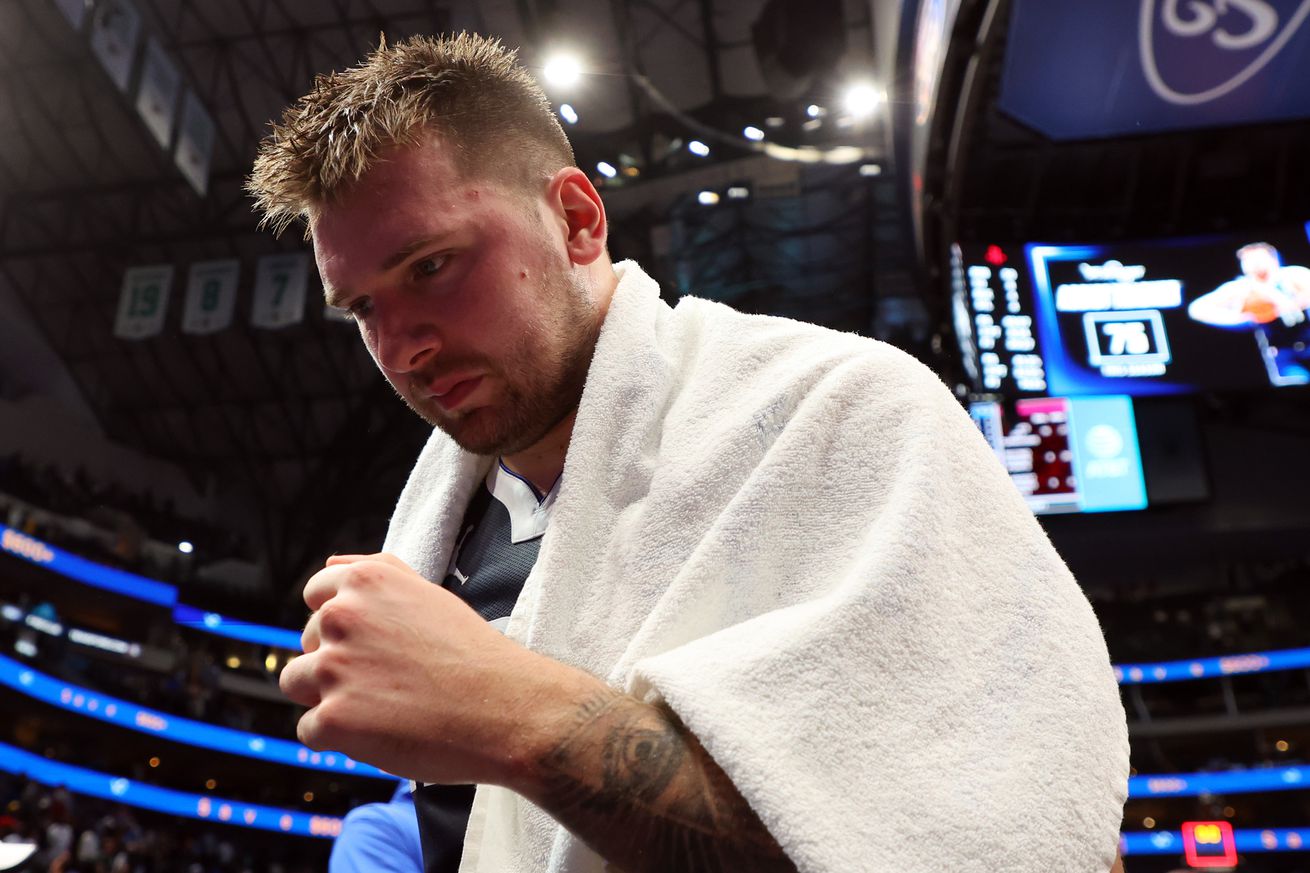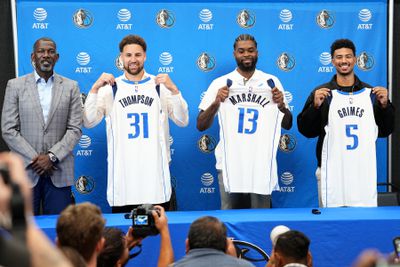
If you change the core of a team, the balance can shift and it can take a while to recover. Some teams never do.
Last season the Dallas Mavericks had the second best clutch record in the NBA, going 23-9. This season, Dallas currently sits at number 28, going 2-6.
After six awful clutch losses already this season, the question of the hour is: what changed since last season?
Is it because Luka Doncic hasn’t quite found his rhythm yet? Or is it the coaching that’s not up to par? Or did losing a couple of athletic players hurt the team more than expected?
Luka Doncic’s slow start has definitely affected the team. He’s the leader and with slow starts and at times poor decision-making and body language also in clutch, he seems to overcompensate for what looks like an already wobbled physical state, and underperform at other times for the same reason.
But Luka’s effort is not the main reason this team is not performing well in clutch. With three world class crunch time performers, the Mavericks are more than capable of turning to someone else when Luka is struggling.
If we look at coaching, something clearly hasn’t been working here either. Last season, the coaching staff seemed to have ATO’s ready and ran plays both in clutch and after timeouts. That seems to be missing more this season. The reason why it’s changed is not clear, since the staff hasn’t had any big personnel changes. But the fact is that Jason Kidd and his coaching staff managed to lead two different rosters on deep playoff runs two out of three years, and for that reason I hesitate to blame this on them entirely.
The answer is probably somewhere within all of this, plus a few factors we don’t even know about. As with all things when dealing with real human beings, nothing is black or white. The world is nuanced and gray is the color of real life lived.
As the team lost the athleticism of Derrick Jones Jr. and Josh Green, they also gained three new key rotation players in Klay Thompson, Naji Marshall and Quentin Grimes.

Photos by Glenn James/NBAE via Getty Images
That does not mean that the loss of these guys and their athleticism is to blame, however. But what it does mean is that there is all of a sudden three key players to integrate into the system. And that is where I think the biggest issues to start the season come from.
When we talk about basketball we often forget the human aspect of it all. It’s easy to forget that professional athletes are people. We see them on tv, idolize them, fantasy basketball, computer games, send trade ideas to each other and some may even bet on players and games – blaming players if they lose money.
But NBA players are not robots or chess pieces to move around in order to fill a role you need. Or a tool to make money. The truth is that they are just like you and I. Some have more talent, or just plain discipline and most are way more athletically gifted than the rest of us. But these men (and women) are human beings with feelings, insecurities and personalities. Just like us, they talk and vibe better with some people than with others, and sometimes they don’t get along. Mostly though, they’re professionals who want to do what’s needed for the team.
In basketball, like in other team sports, the chemistry between players matters. Trust, connection, being able to read and know each other well enough to understand where the other player will move in a game situation takes time. It takes reps. To know how other players act during pressure, like in clutch, takes even more. It takes adversity.
Players say it all the time, coaches reiterate: it takes time to gel. Kyrie Irving and Luka Doncic’s famously awkward start together in Dallas is a great example. Kyrie kept emphasizing how it takes time to gel and connect. And as time would tell, he was right.
When the Dallas Mavericks added three key players over the summer, it changed the dynamic. Integrating new players into a group is a process. Just like it is for us, when we start a new job – we may be insecure of our new tasks and about our new role. We may not understand the unspoken rules of the new workplace yet, or the jargon. We may take what looks like wrong turns and make weird decisions to others, simply because we don’t know our new coworkers well enough yet.
Adding elite shooter and experienced vet Klay Thompson may not have made things easier either. Not because of a bad attitude or poor play, but because the Mavs now have three elite clutch finishers with proven track records. Who do you turn to before you’ve established a good understanding of each other?
The hot hand is the obvious answer, but it’s not always obvious on the court, when feelings, confidence and emotions take over.
Moving human beings around comes at a cost. These players are not robots to fill a spot and seamlessly fit whatever needs a team has.
Professional athletes do not lose their humanity just because they make a lot of money and show up on our screens every week. Their hands shake in the same way as ours when we’re nervous, their decision-making is impaired if they feel on shaky ground too and their performance may be affected by personal issues. Just like ours.
When you hate on basketball players or other athletes, you’re basically telling people that you have no idea what it’s like to be in that situation. That you have never had the discipline or skill to be really good at something – so good that you’re pushed to the edge trying to reach the next level. So good that you had to leave your comfort zone – or gaming chair – to try to become someone. To try to do big things.
At some point in their lives, these players were you. They had to make a choice. They didn’t make the team, or they didn’t want to put in the extra effort. But greatness demands a choice. And every single player on that court made the choice to keep working, to keep improving. They got out of bed, when you kept sleeping. They missed parties, birthdays and big events to work on their craft. They built discipline.
These players are not robots or chess pieces to move around. In Dallas, they’re fighting through adversity to try and reach greatness right now.
But unless you’ve actually gone through pressure in your life and as a team, unless you’ve experienced that, you don’t understand what words like chemistry, connection and momentum mean. These magic intangibles that no one believes in unless they’ve done hard things. Ask any player. Any coach. Most believe them to be bigger factors than x’s and o’s.
And just like we can’t just move ourselves into different jobs, families or countries without any hiccups, professional basketball teams struggle getting the results they expect, when players don’t know each other.
But the good news is, they will. Hard times build character and overcoming losing streaks build winning teams. Moving players around comes at a cost.